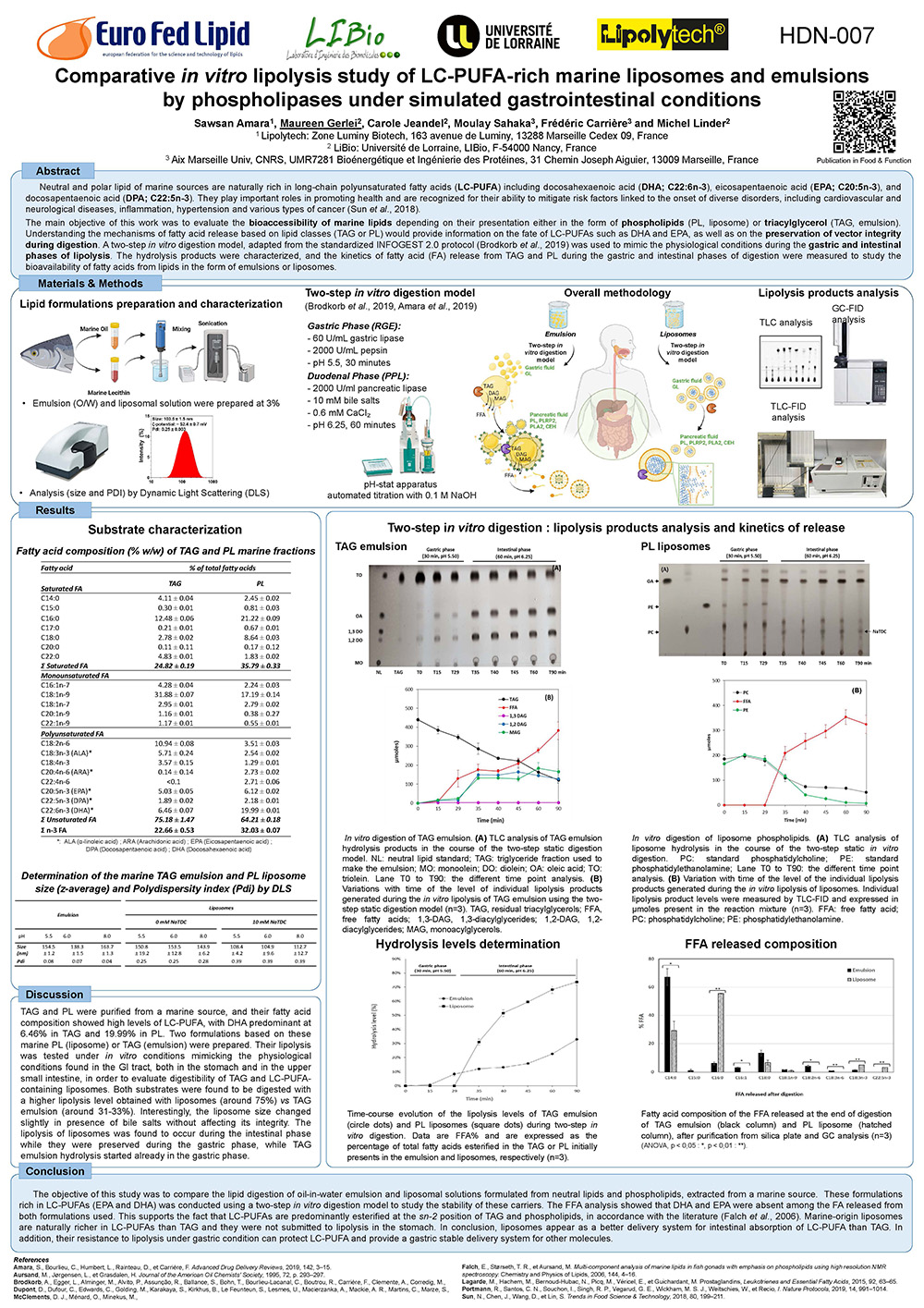Marine oils are a natural source of n-3 long-chain polyunsaturated fatty acids (LCPUFAs), with eicosapentaenoic acid (EPA; C20:5 n-3) and docosahexaenoic acid (DHA; C22:6 n-3) as the main components. These fatty acids are well known for their beneficial effects in the prevention and management of inflammation, hypertension, and cardiovascular and neurodegenerative diseases. Their bioavailability during digestion largely depends on their chemical form, whether as triacylglycerols (TAGs) or phospholipids (PLs).
In this study, lipids were extracted from salmon (Salmo salar) heads using a green process, then concentrated and purified to prepare two formulations: a TAG-based emulsion and a PL-based liposomal solution. The lipolysis of each formulation was first evaluated in vitro using individual gastrointestinal enzymes (lipases and phospholipases) to identify those involved in their digestion. A two-step in vitro digestion model (INFOGEST 2.0 protocol), simulating gastric and intestinal phases, was then used to assess the overall digestibility of both systems. The results showed that the TAG emulsion was mainly hydrolyzed by porcine pancreatic extract (PPE) and purified pancreatic lipase (PPL) with colipase. Pancreatic lipase-related protein 2 (PLRP2) and a gastric extract (RGE) showed moderate activity, while purified PLA2 and carboxyl ester hydrolase (CEH) showed no significant effect. The liposomal formulation was efficiently hydrolyzed by PLA2, PPE, and PLRP2, with enhanced activity in the presence of bile salts, suggesting a synergitic effect. Fatty acid release was much higher from PL liposomes (~75%) than from the TAG emulsion (~33%), suggesting that liposomes could serve as effective delivery systems for hydrophilic bioactives, by providing gastric protection and enabling targeted intestinal release.
